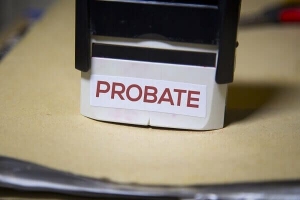
7 Things That Can Happen after Probate in Florida
Whether you were appointed as your loved one’s representative, you were involved in (or weren’t involved in) probate as an heir or beneficiary, or you simply have questions about what to expect once the process is over, it is important to be aware of the additional steps that can arise after probate in Florida. Here are seven possibilities:
1. Objections to the Distribution of Estate Assets
Following probate, it is possible that an heir, beneficiary, or other interested parties could object to how assets were distributed from the estate. Essentially, this would involve a claim that the personal representative erred in distributing the estate’s assets, whether by distributing the wrong assets to the wrong individuals, failing to transfer a portion of the estate to someone who was entitled to participate, or otherwise.
The grounds for filing such a challenge are limited, and the options for recovering assets, once they have been distributed, are limited further still. But, in appropriate cases, heirs or beneficiaries who did not receive the assets to which they were entitled may be able to sue the personal representative for damages.
2. Issues with Creditors Who Claim They Were Not Properly Notified
During probate, the decedent’s personal representative must provide adequate notice to creditors, and creditors must be afforded the opportunity to collect from the estate consistent with Florida law. If a creditor was not properly notified and only learned of the distribution of the decedent’s estate after probate closed, then the creditor may have grounds to pursue a claim against the personal representative as well.
3. Trust Administration
In addition to probate administration, the distribution of a decedent’s estate will often involve the administration of one or more revocable or irrevocable trusts. Unlike probate administration, which is generally a one-time event (although it can take several months to complete), trust administration is an ongoing process that can continue for years or decades.
Trust administration is an out-of-court process that is managed by the decedent’s appointed “trustee.” The trustee manages the trust’s assets for the benefit of the decedent’s named beneficiary or beneficiaries in accordance with the terms of the trust’s governing documents. Unlike probate, in which both non-named heirs and named beneficiaries can potentially claim an interest in the decedent’s estate, with a trust, it is generally only the named beneficiaries who can claim a valid interest in the trust’s assets. However, issues can still arise, and it is up to the trustee to ensure that he, she, or it manages the trust’s assets as required.
4. Life Insurance Claims and Other Non-Probate Matters
In addition to assets placed into a trust, the administration of a decedent’s estate can potentially involve various other “non-probate assets” as well. While distributing many types of non-probate assets is usually a fairly straightforward process (which is one of the benefits of avoiding probate during the estate planning process), issues can linger after probate in some cases. In particular, life insurance claims can present a number of challenges, and family members will often struggle to secure coverage in an efficient manner.
5. Guardianship of Minor Children
In circumstances involving minor children, the guardian’s role continues long after the probate process ends. The children’s appointed guardian must provide a home environment and meet the children’s financial needs consistent with Florida law and the terms specified in the decedent’s estate plan. Oftentimes (though not always), parents will set aside funds for their chosen guardians, and guardians must use these funds as permitted while also managing the children’s own financial assets (i.e., those left in a will or trust) for the children’s exclusive benefit.
6. Titling, Tax, and Other Issues for Heirs and Beneficiaries
For heirs and beneficiaries who receive assets from the decedent’s estate, receiving these assets can trigger various legal requirements. In particular, those who receive a piece of real estate, a vehicle, a boat, or any other titled asset must ensure that the necessary paperwork is completed to re-title the asset in their name.
Taxes will need to be addressed as well. While most estates are exempt from the federal estate tax, those that aren’t will often have substantial tax bills. Additionally, individual heirs and beneficiaries will need to assess whether any of the assets they received through probate trigger ongoing property tax, income tax, or other tax obligations.
7. Deciding to Prepare Your Own Estate Plan
Finally, following the administration of a loved one’s estate, it is important to consider your own estate planning needs. If you already have an estate plan, receiving assets from a loved one may necessitate updates or modifications. If you do not currently have an estate plan, then putting a plan in place will be essential to protecting your assets and minimizing the burden on your loved ones should something unexpected happen. Estate planning offers several important benefits and protections during your lifetime as well. And by working with an experienced attorney, you can prepare a plan that provides the flexibility you need to make changes over time.
Regardless of your age, marital status, and financial condition, it is important to have an estate plan. If you have questions or would like more information, we encourage you to contact us for a confidential initial consultation.
Speak with a Highly-Skilled Attorney in Jacksonville, FL
Do you have questions about dealing with issues after probate or preparing your own estate plan? If so, we encourage you to get in touch. To request a confidential initial consultation with a trusted local attorney at Beller Law, P.L., please call us directly or inquire online today.
